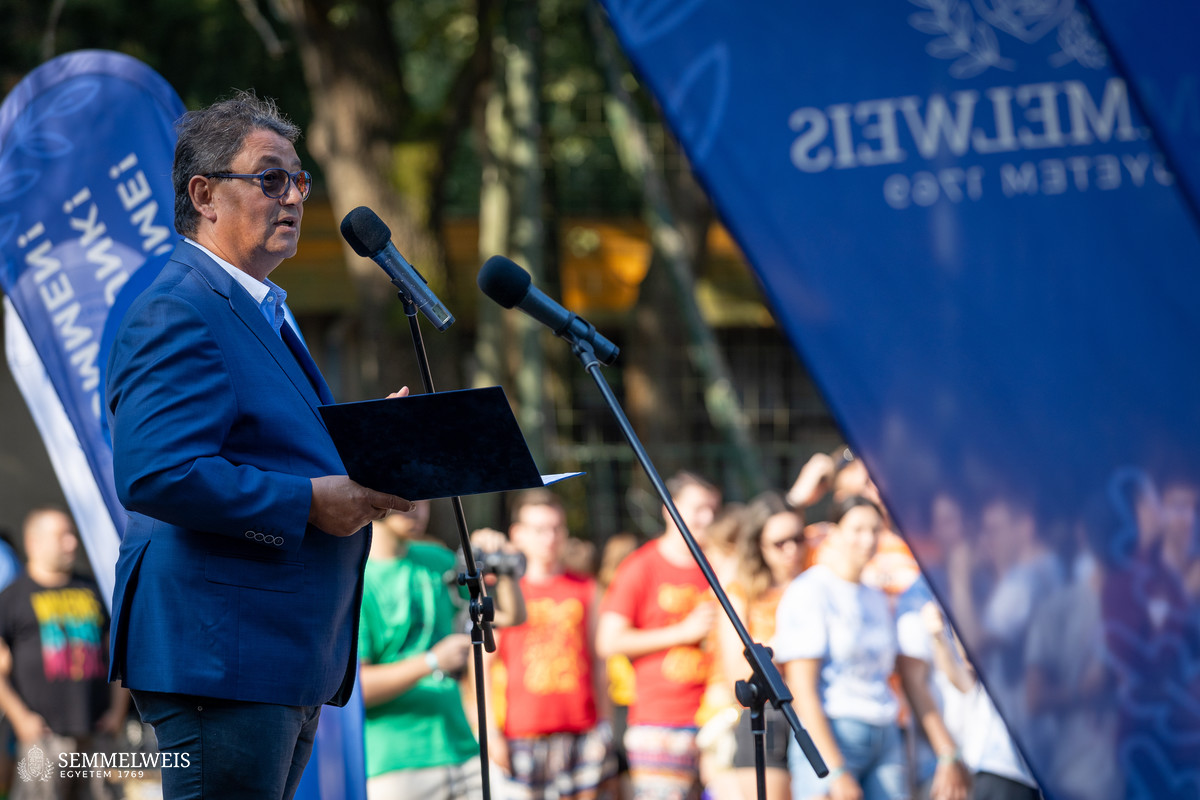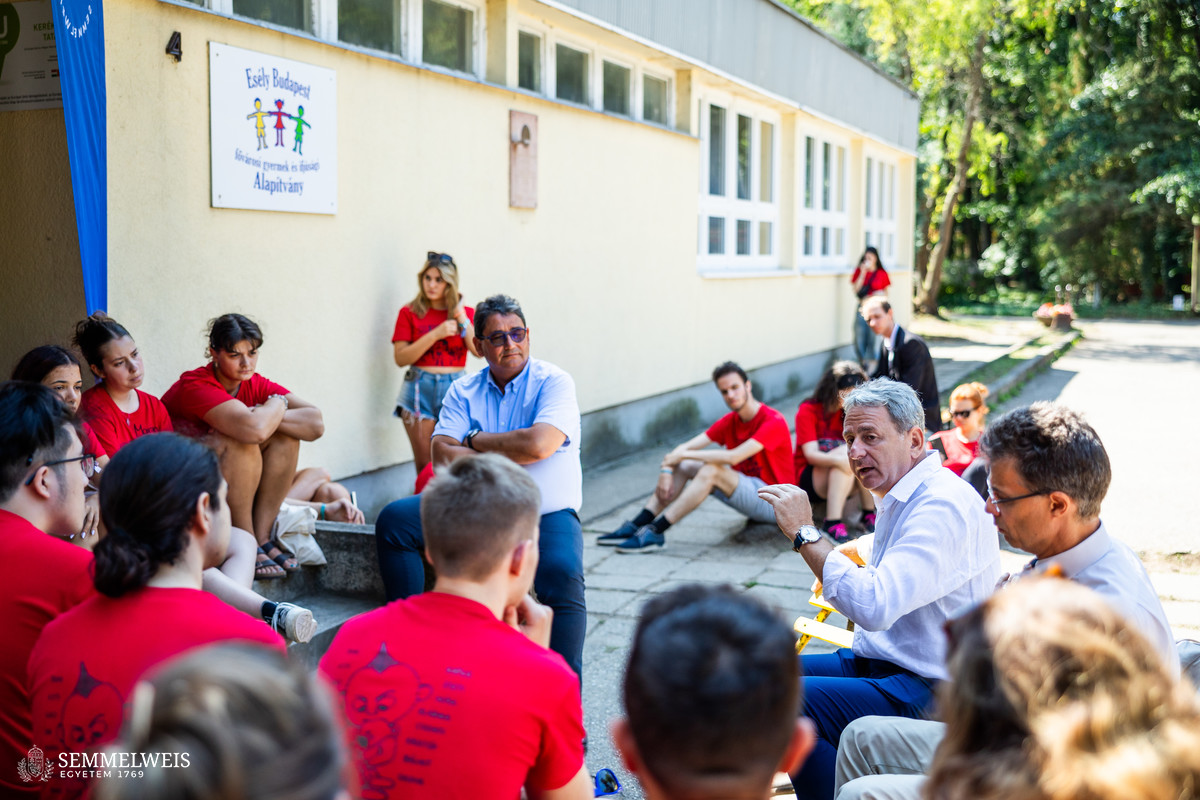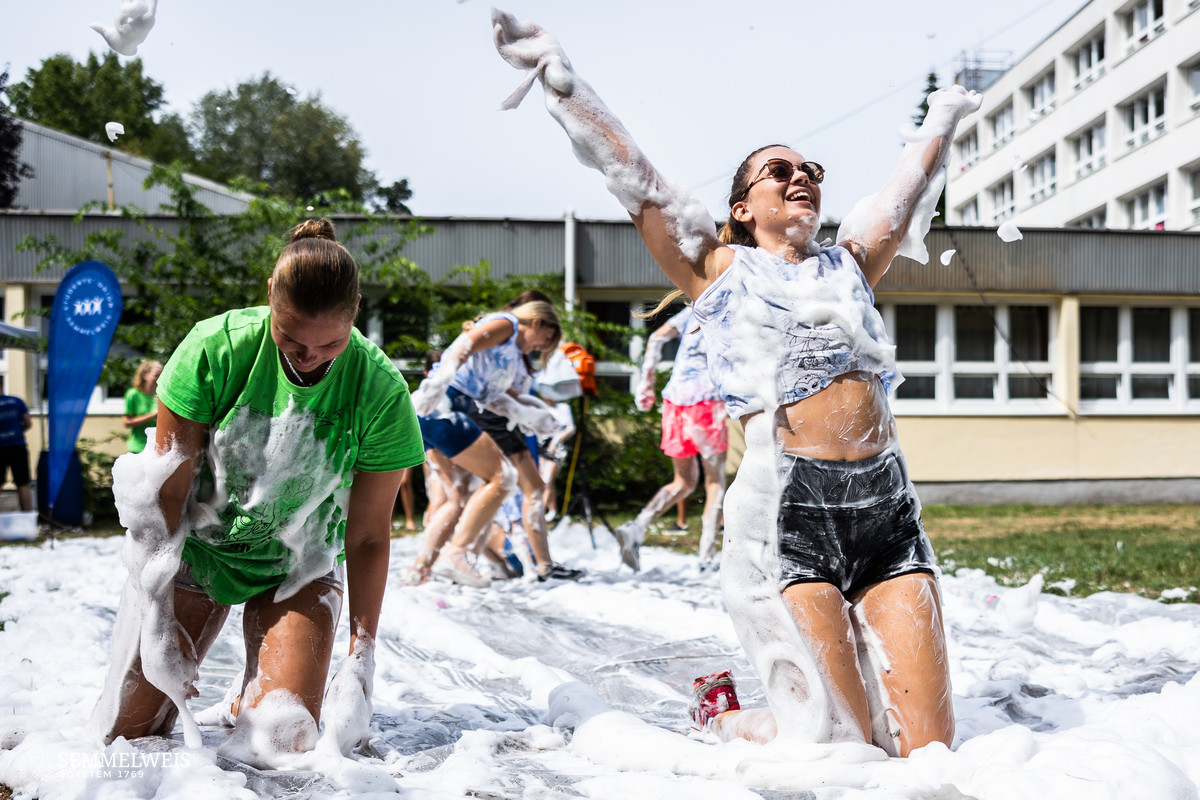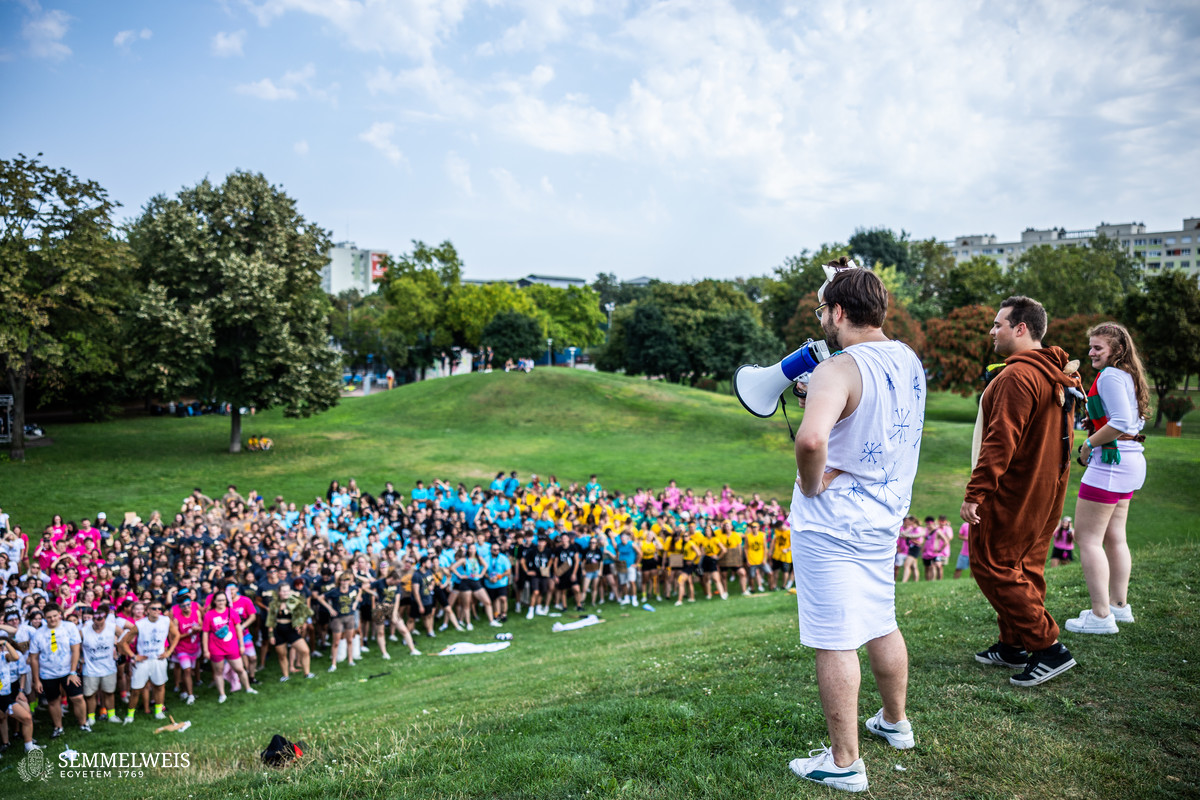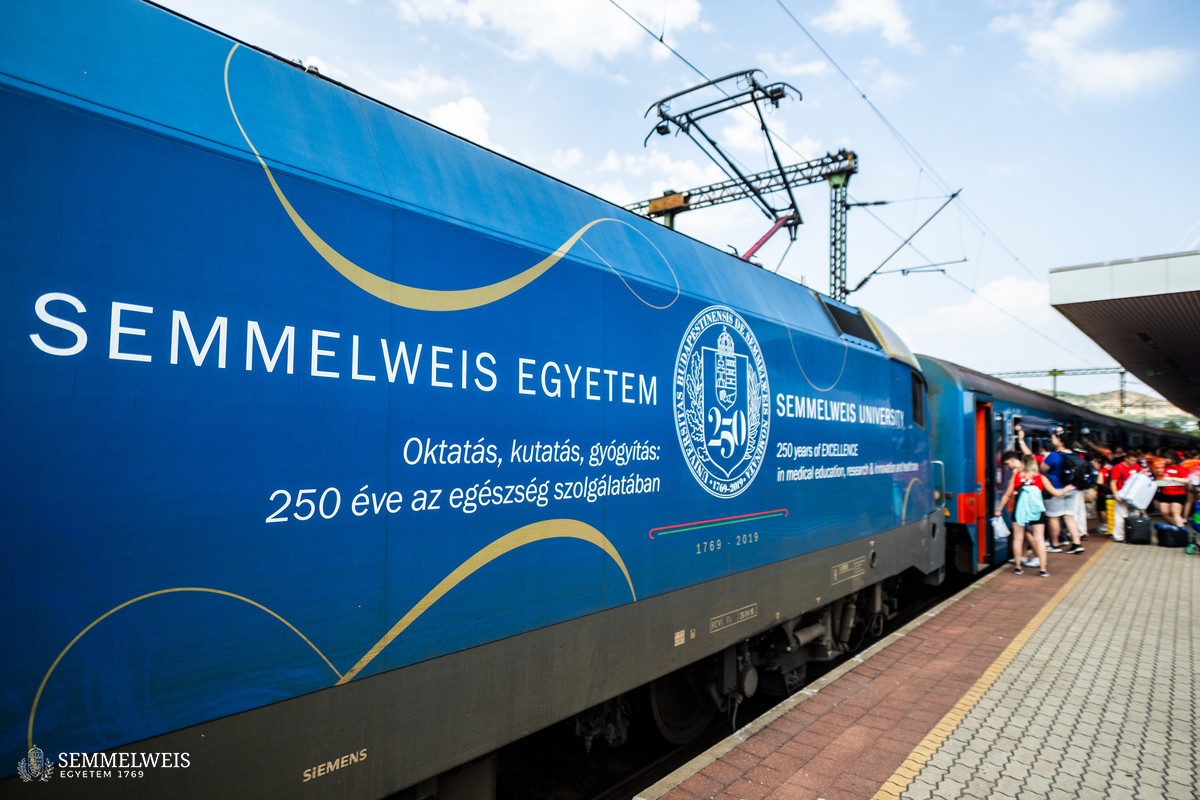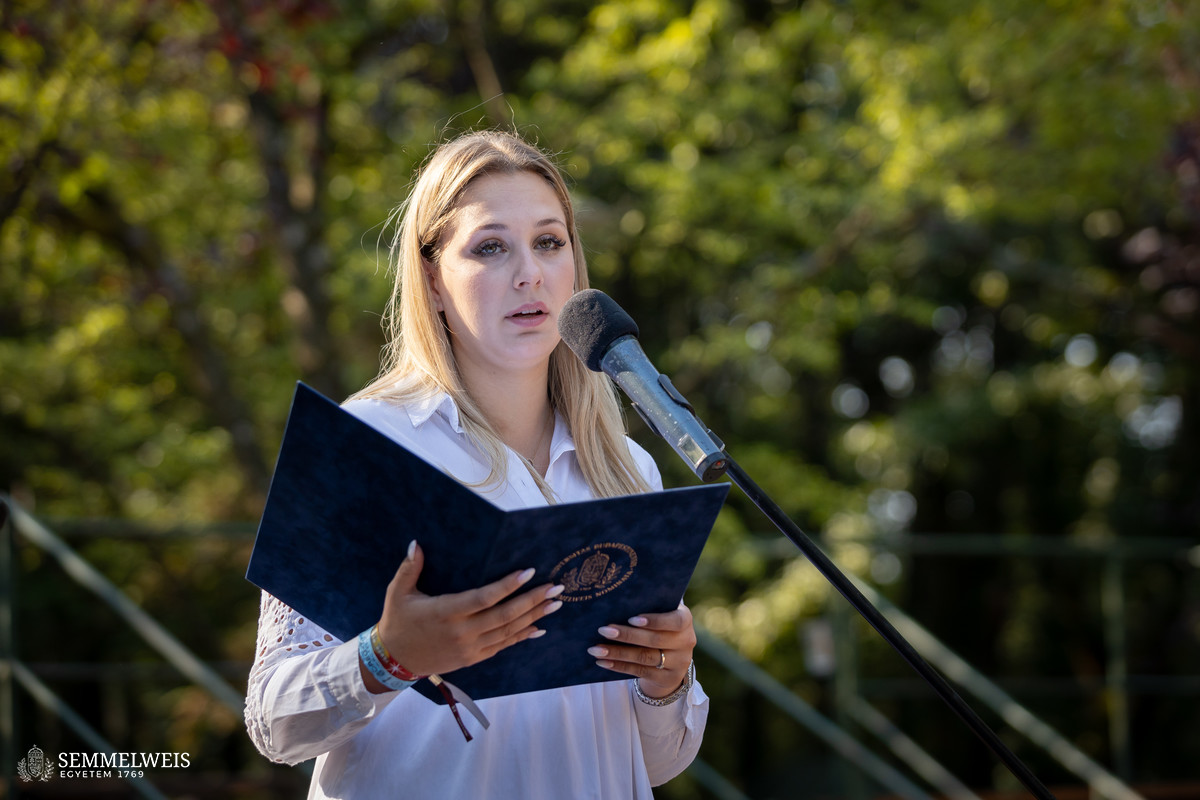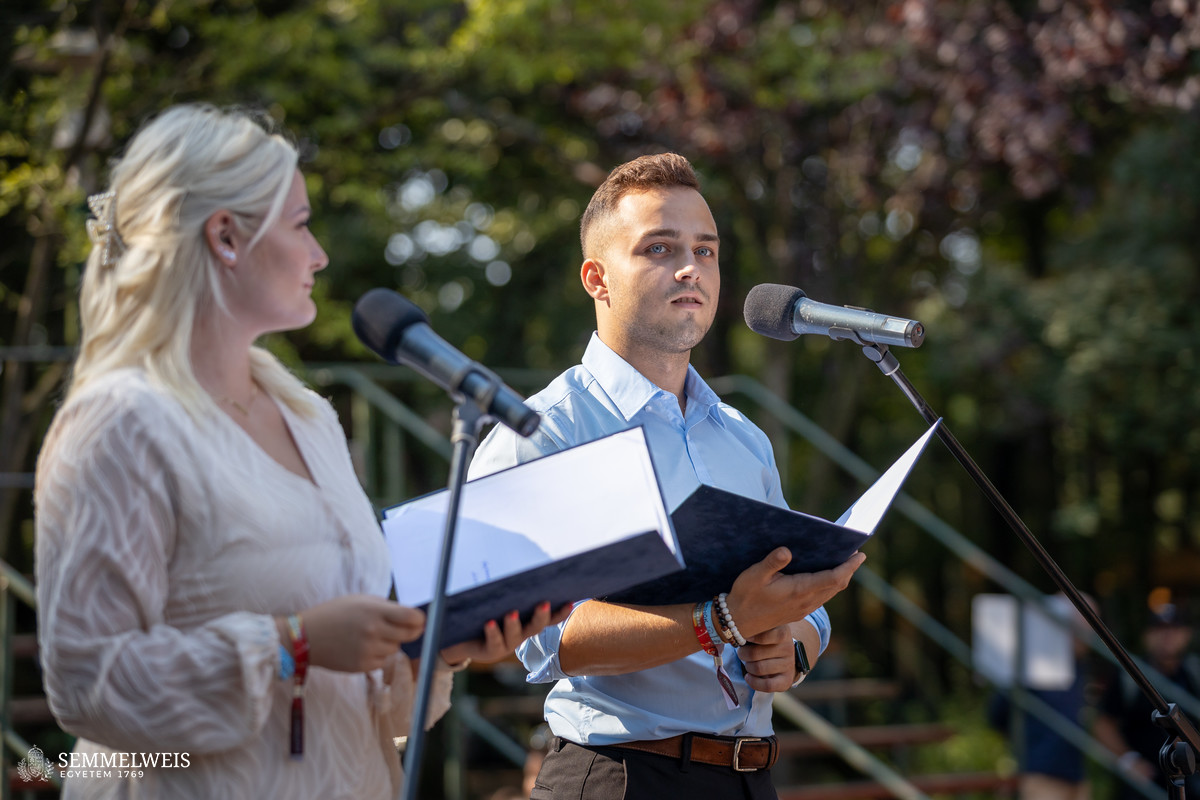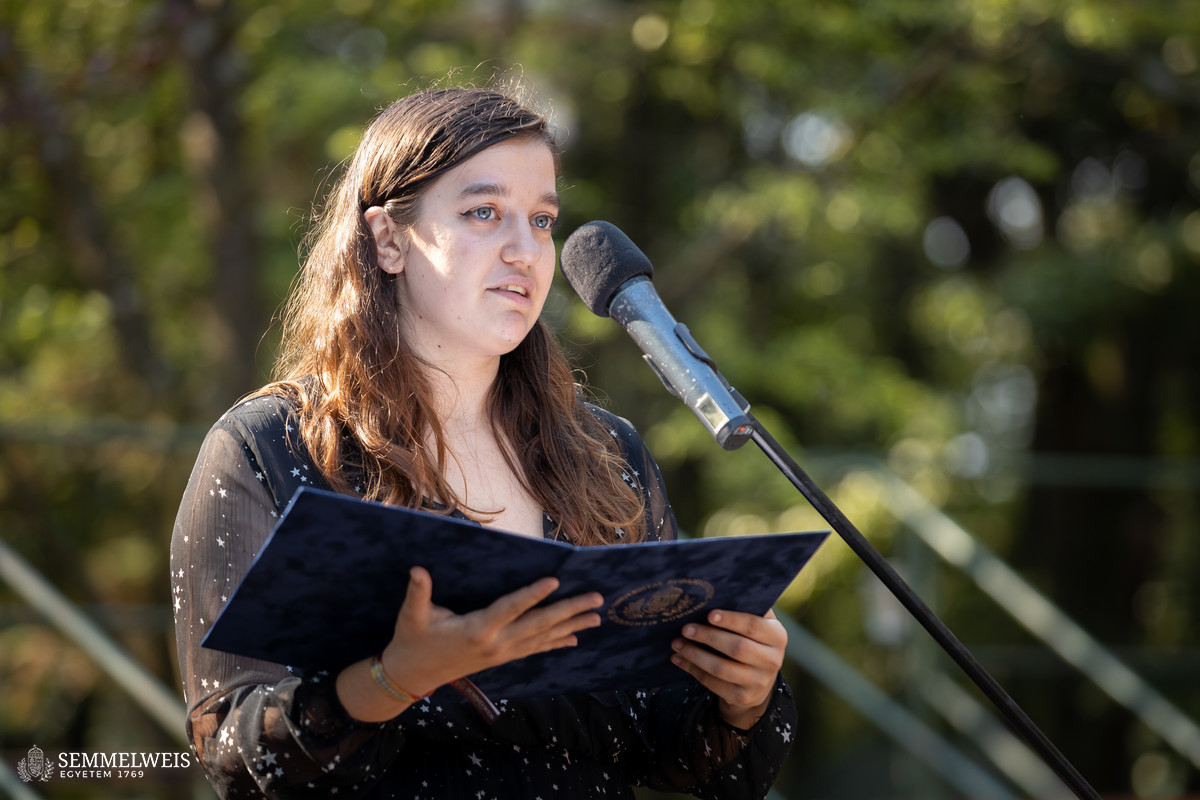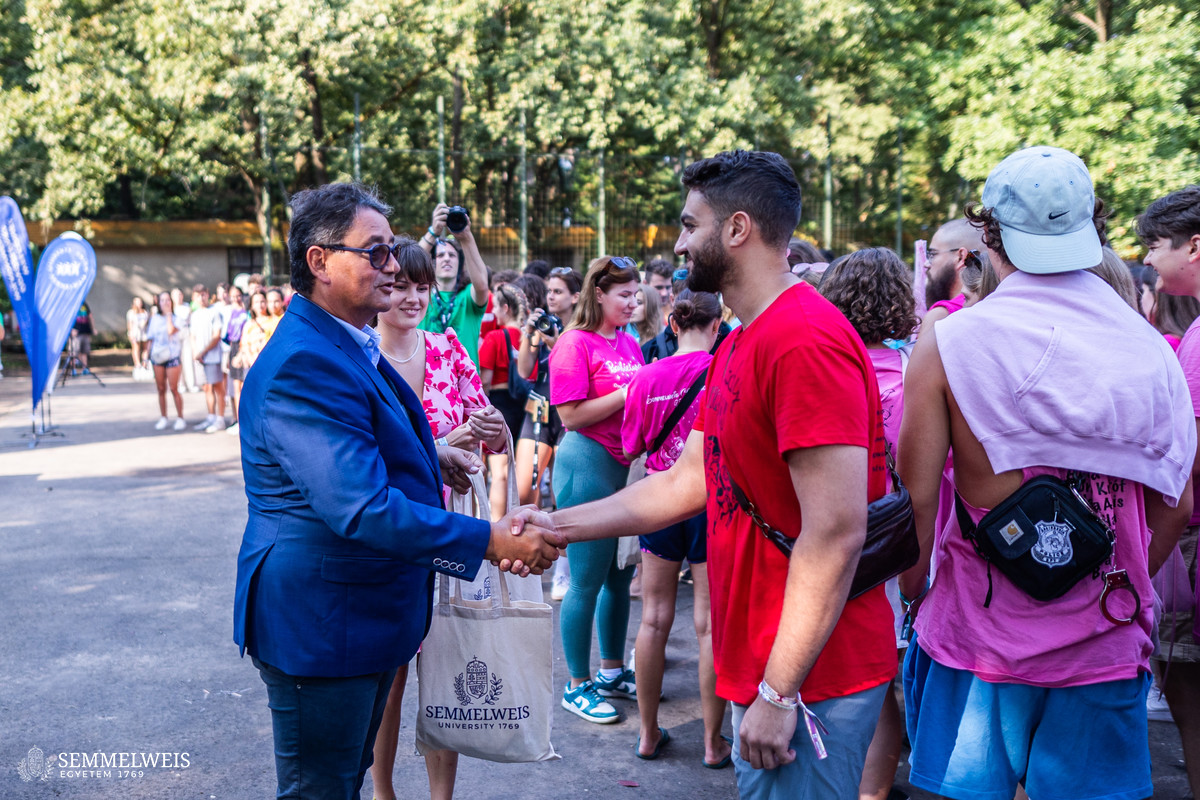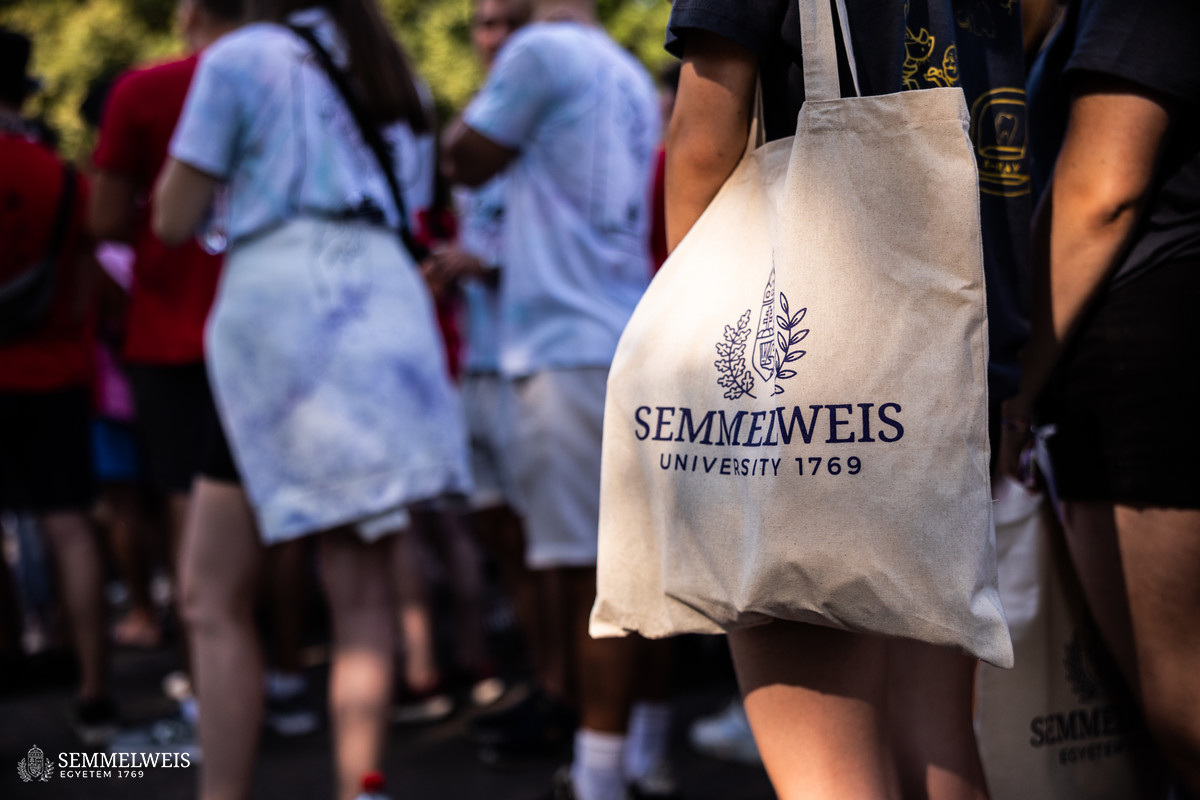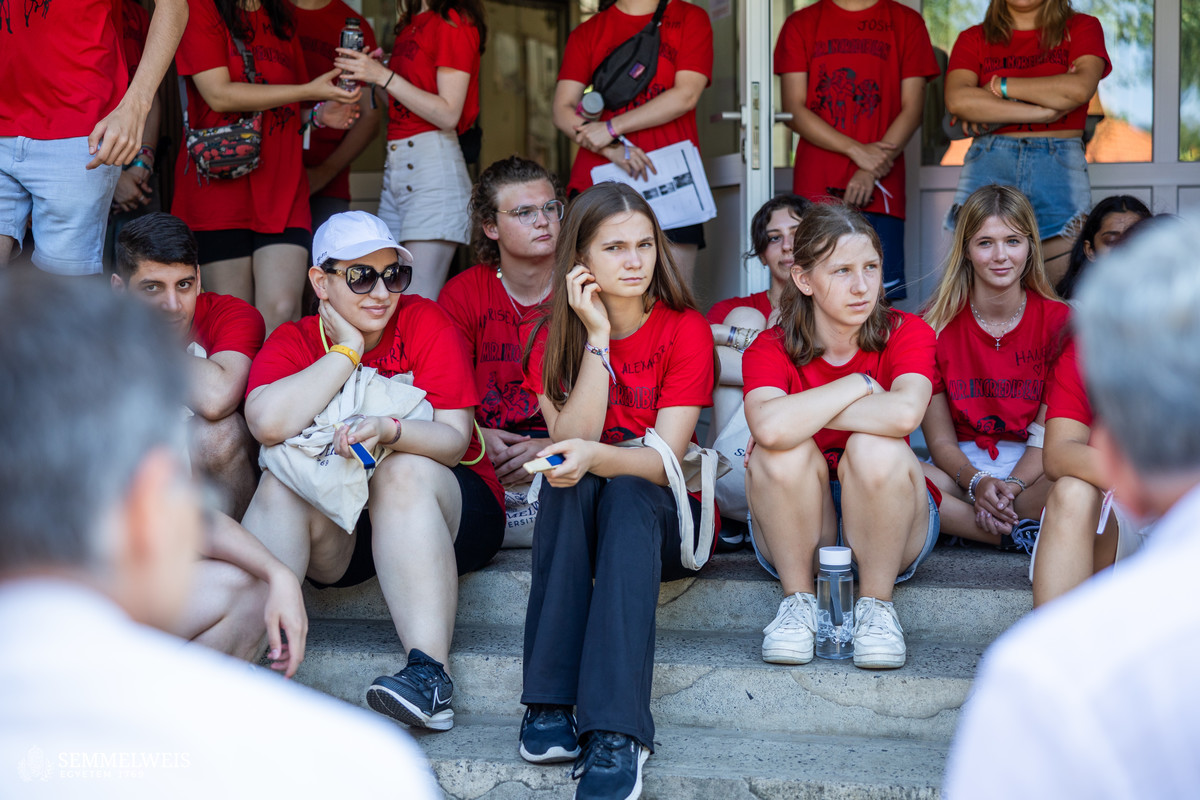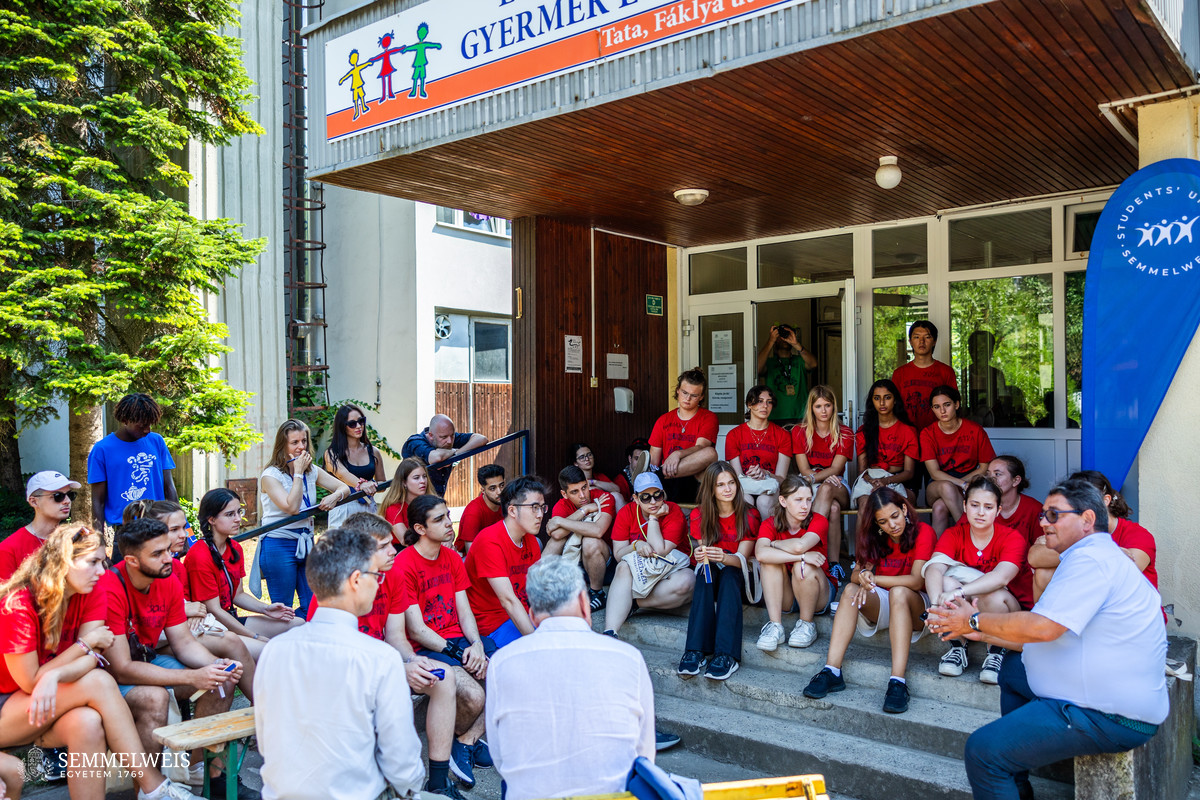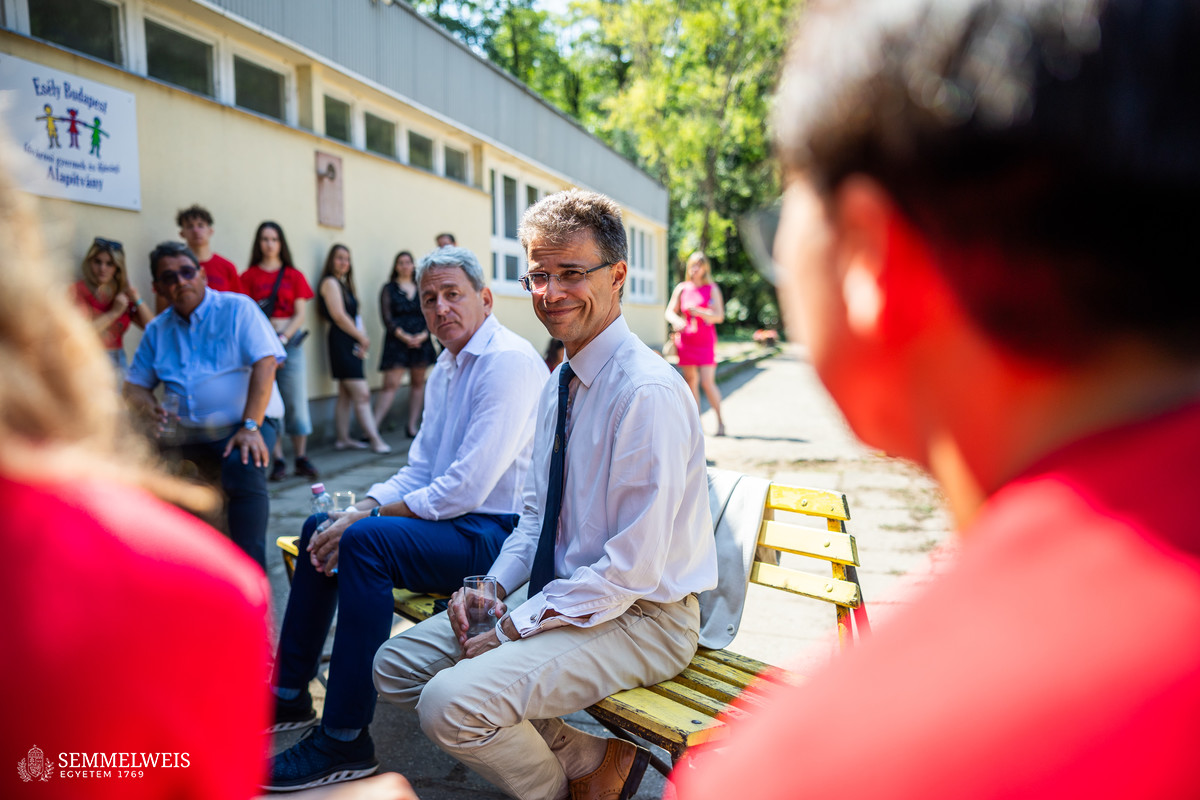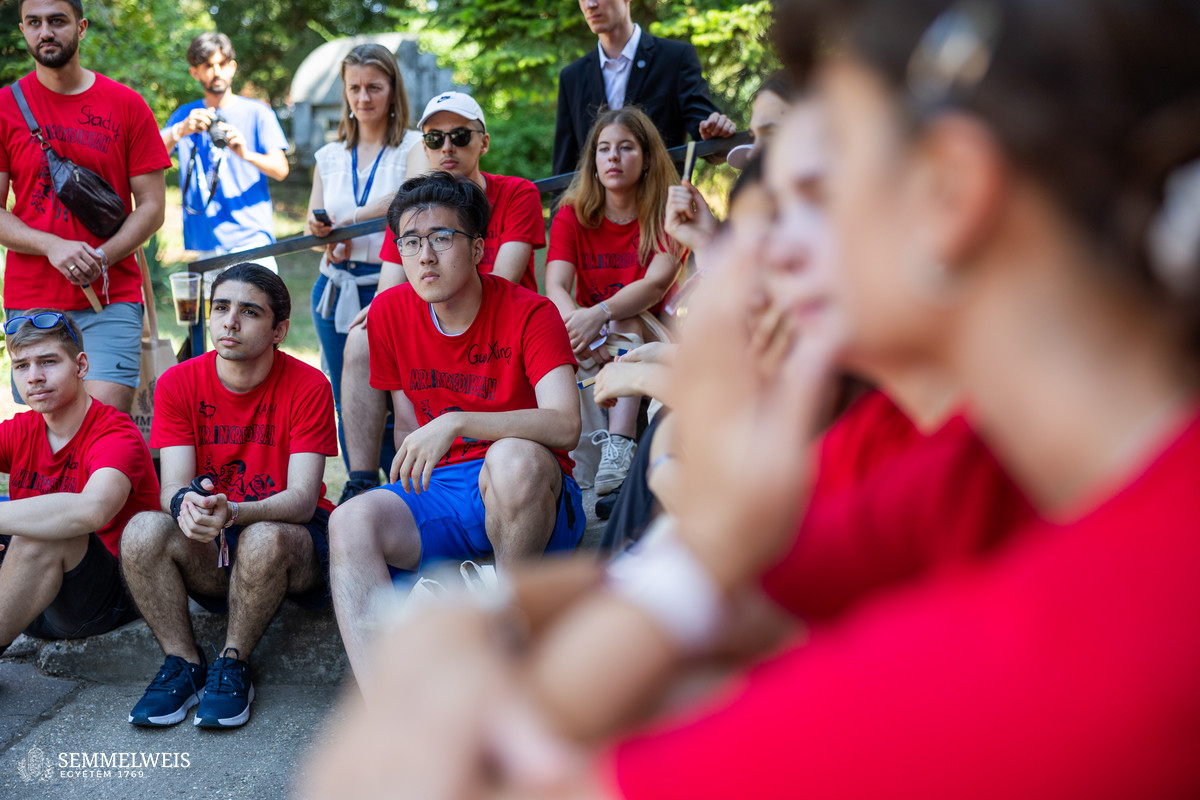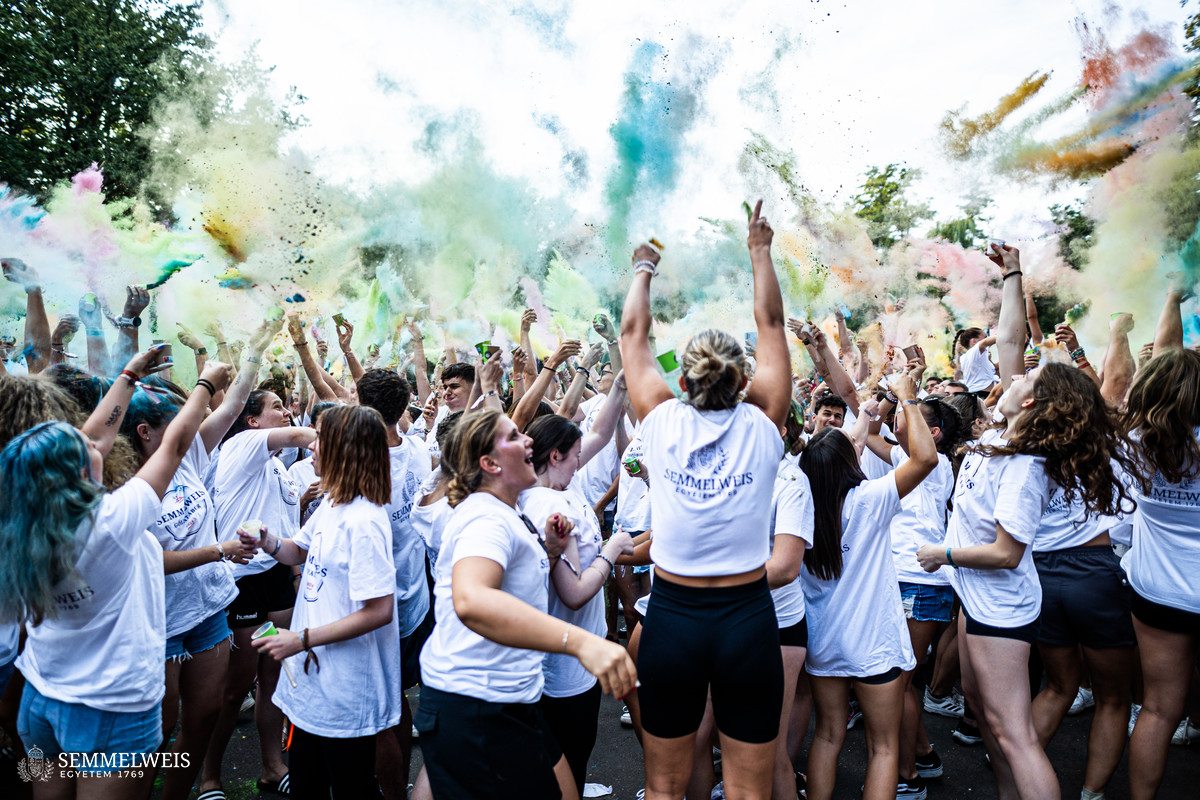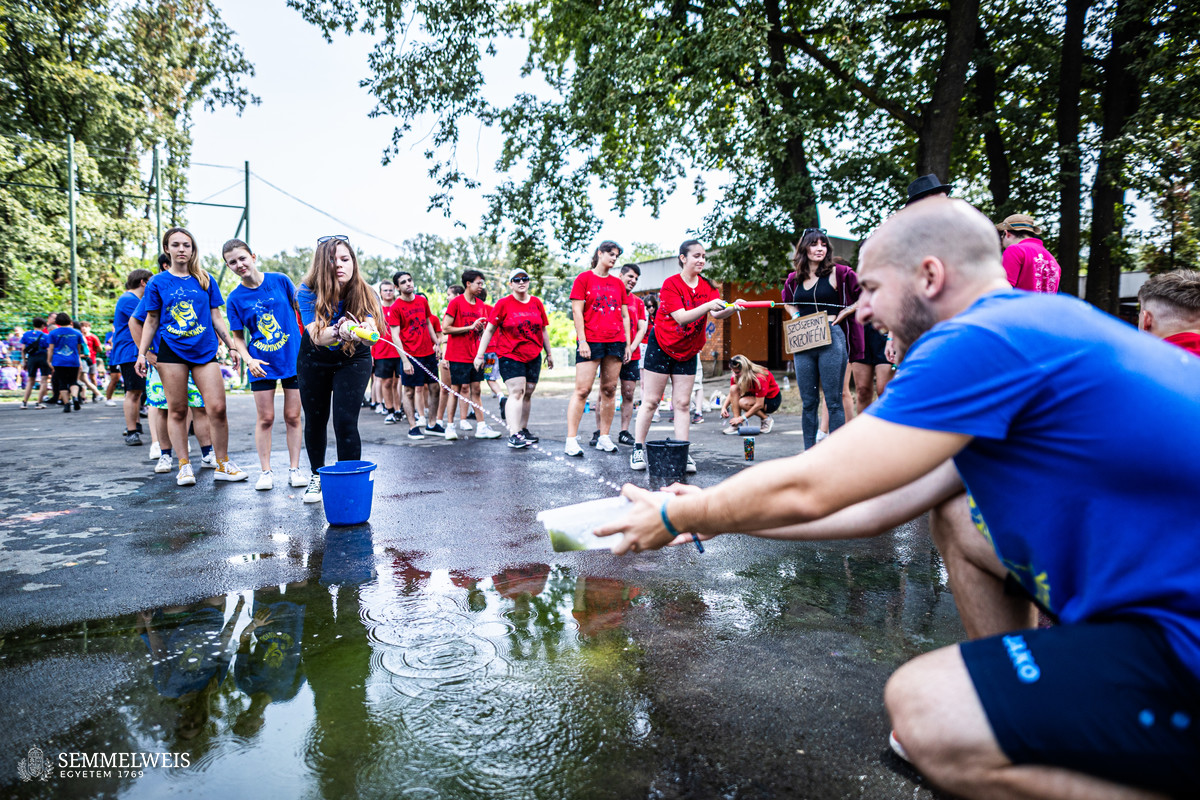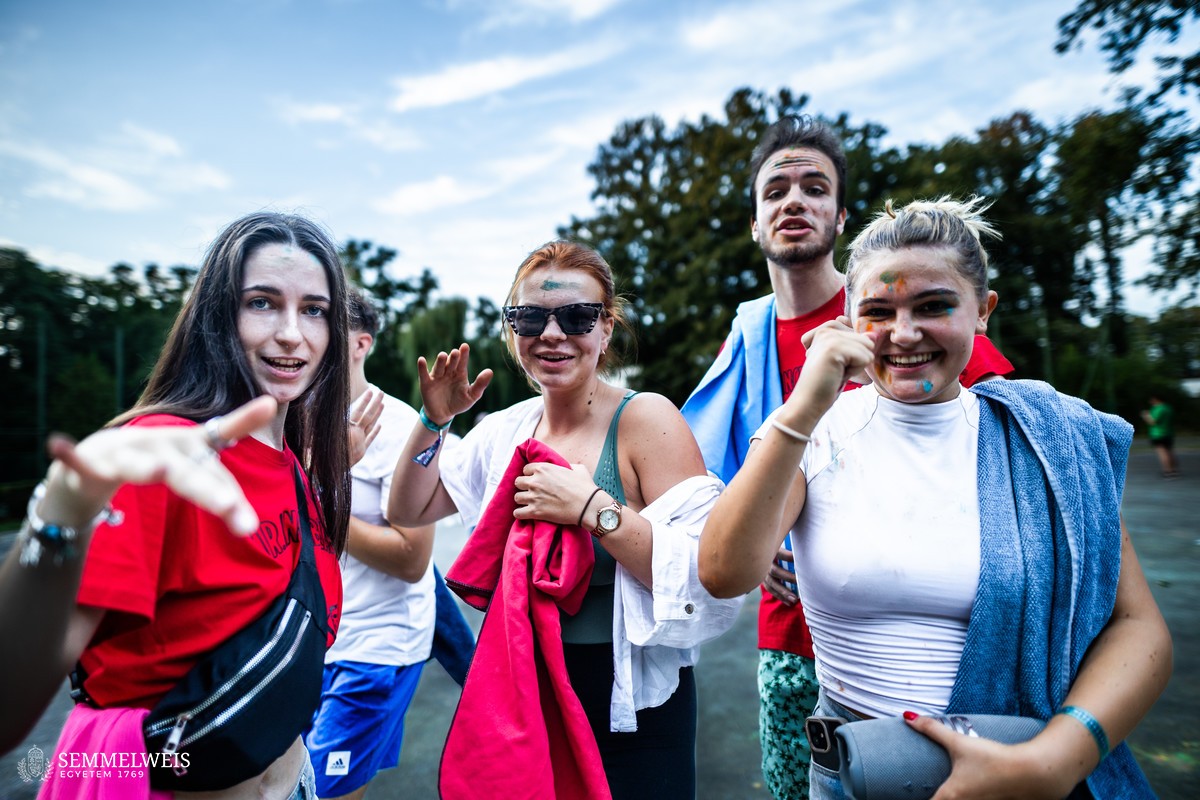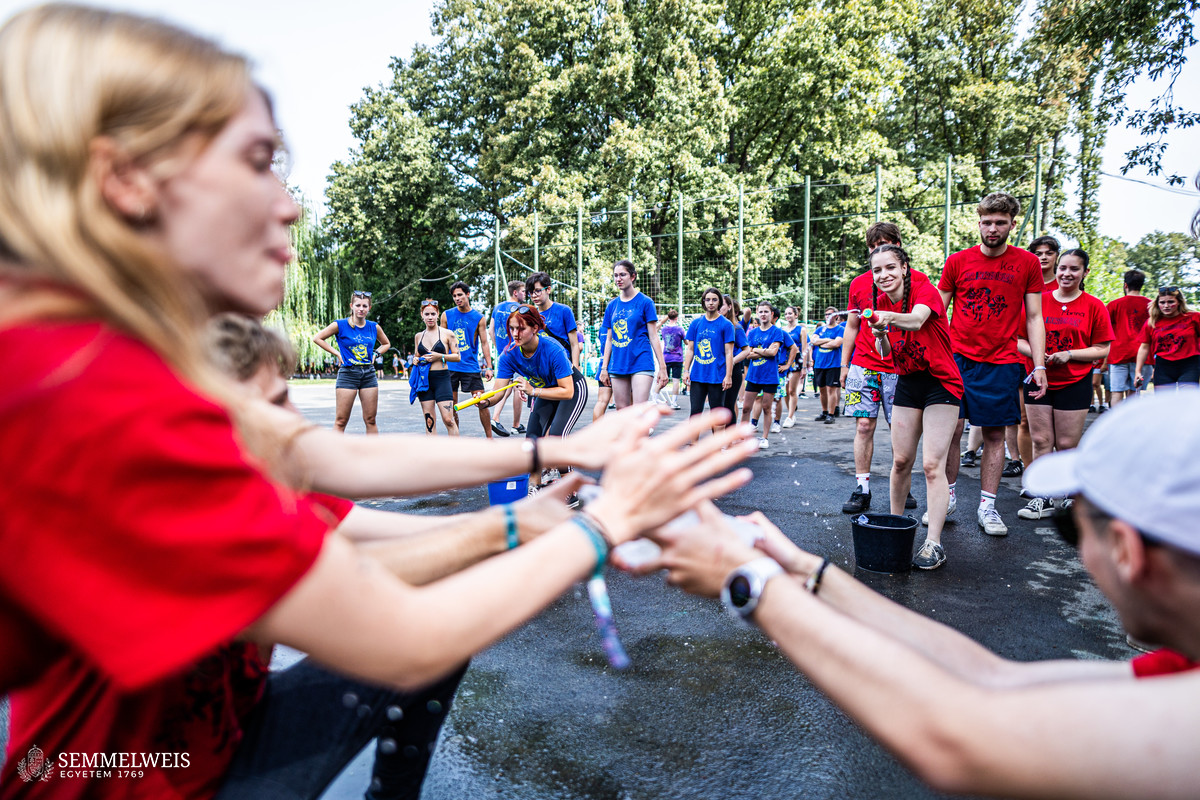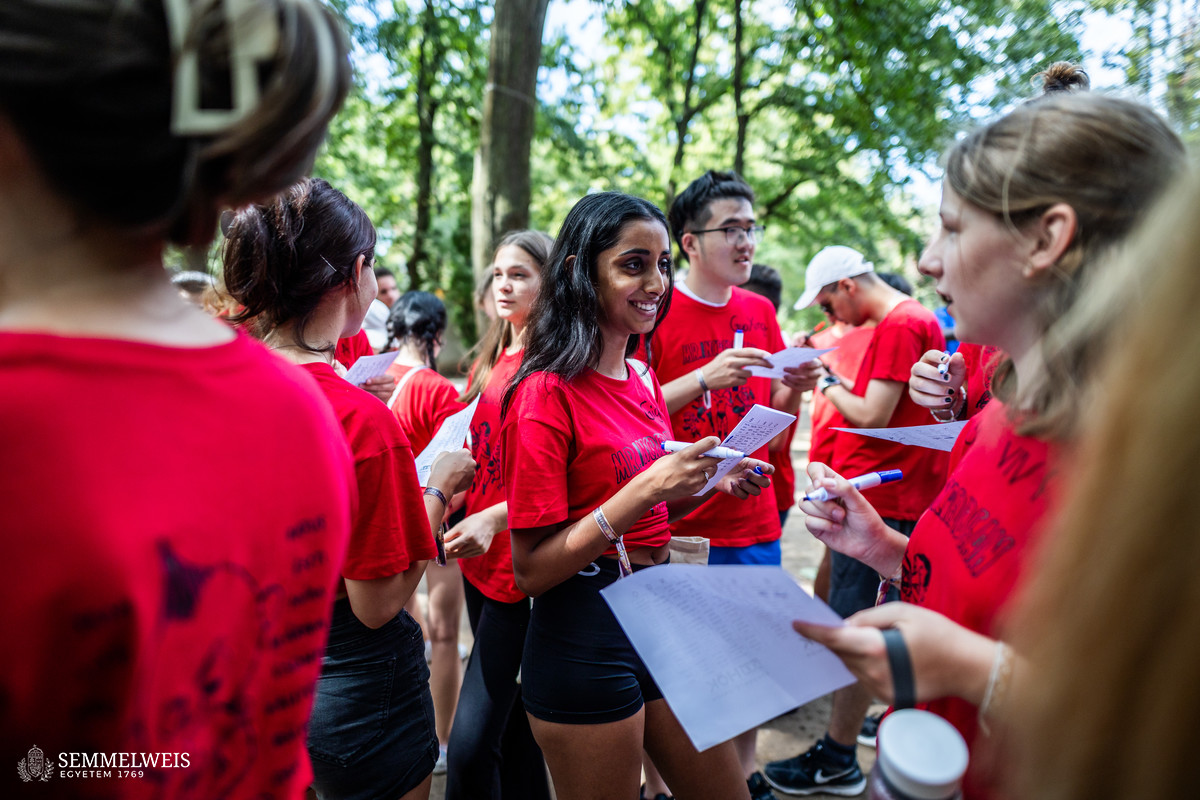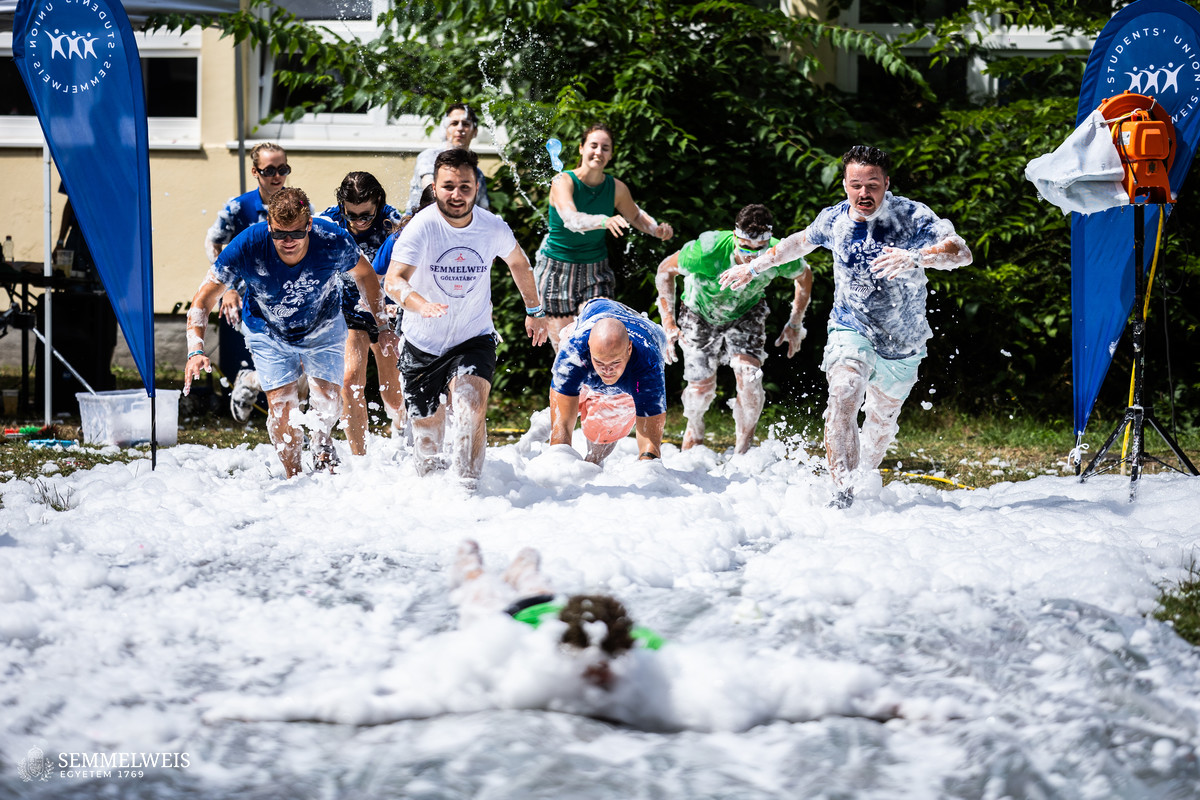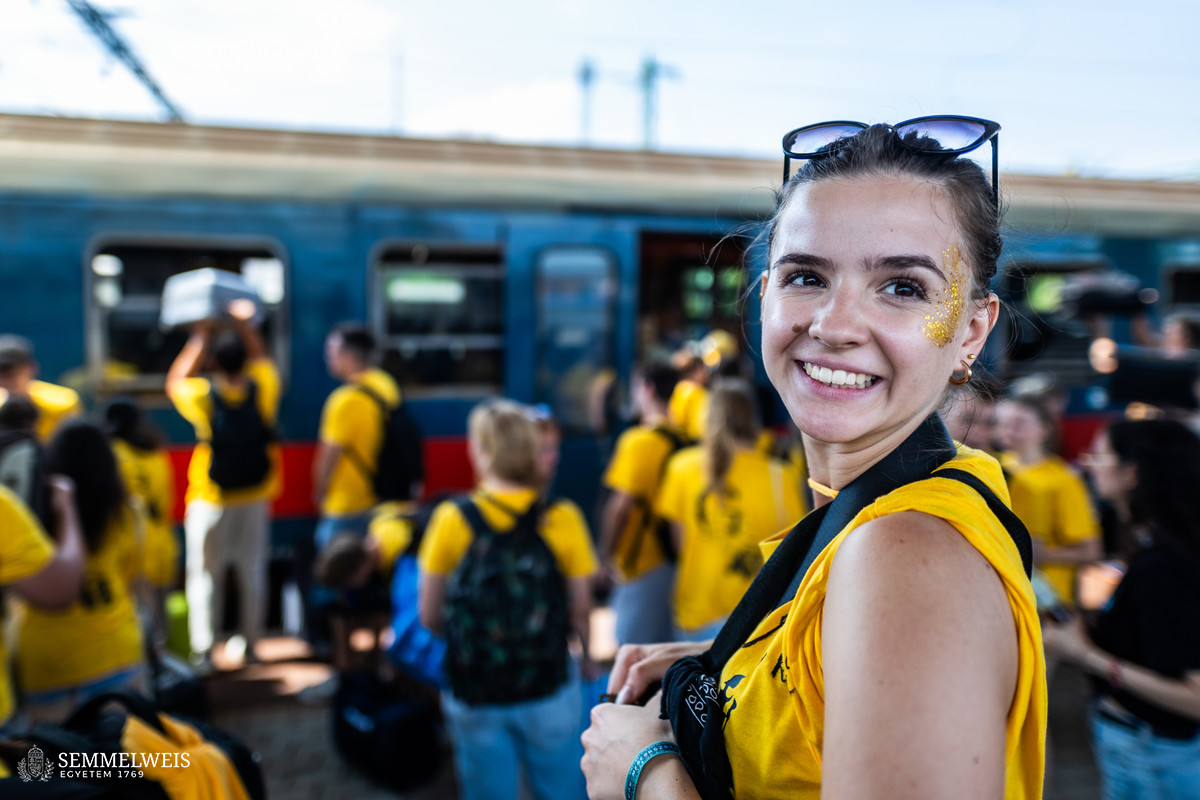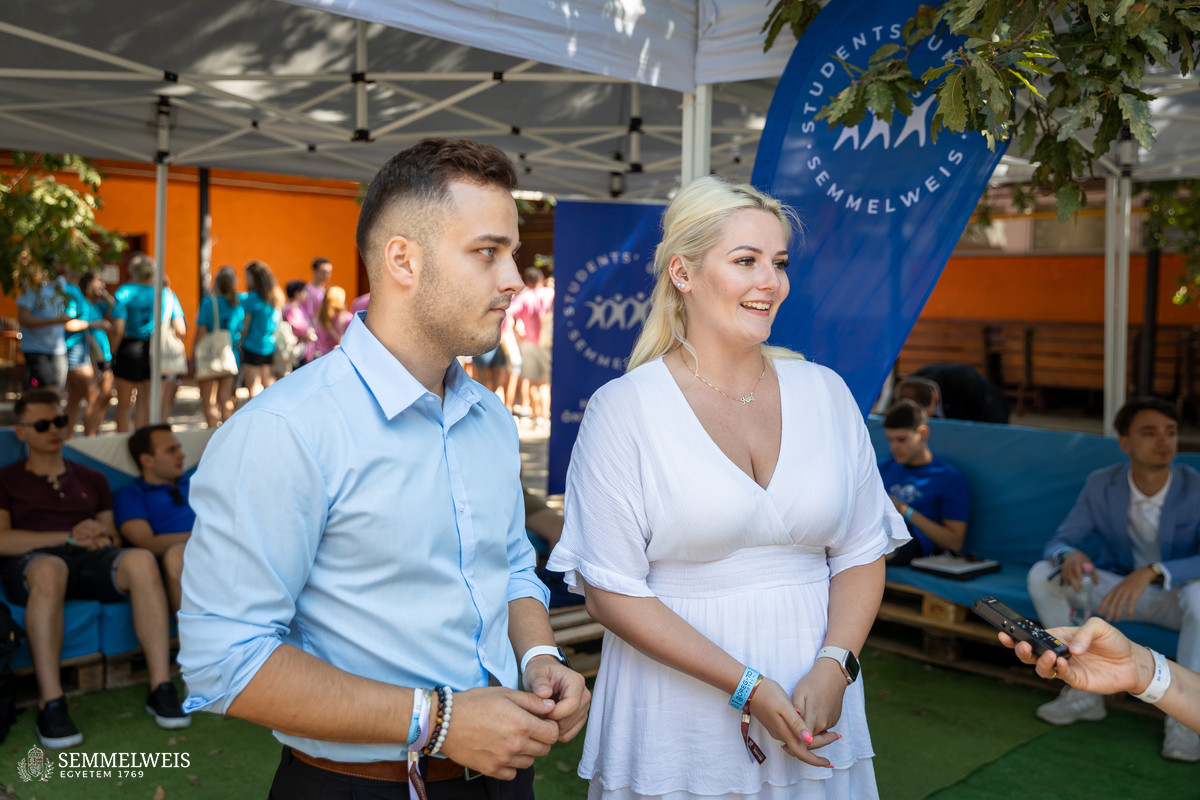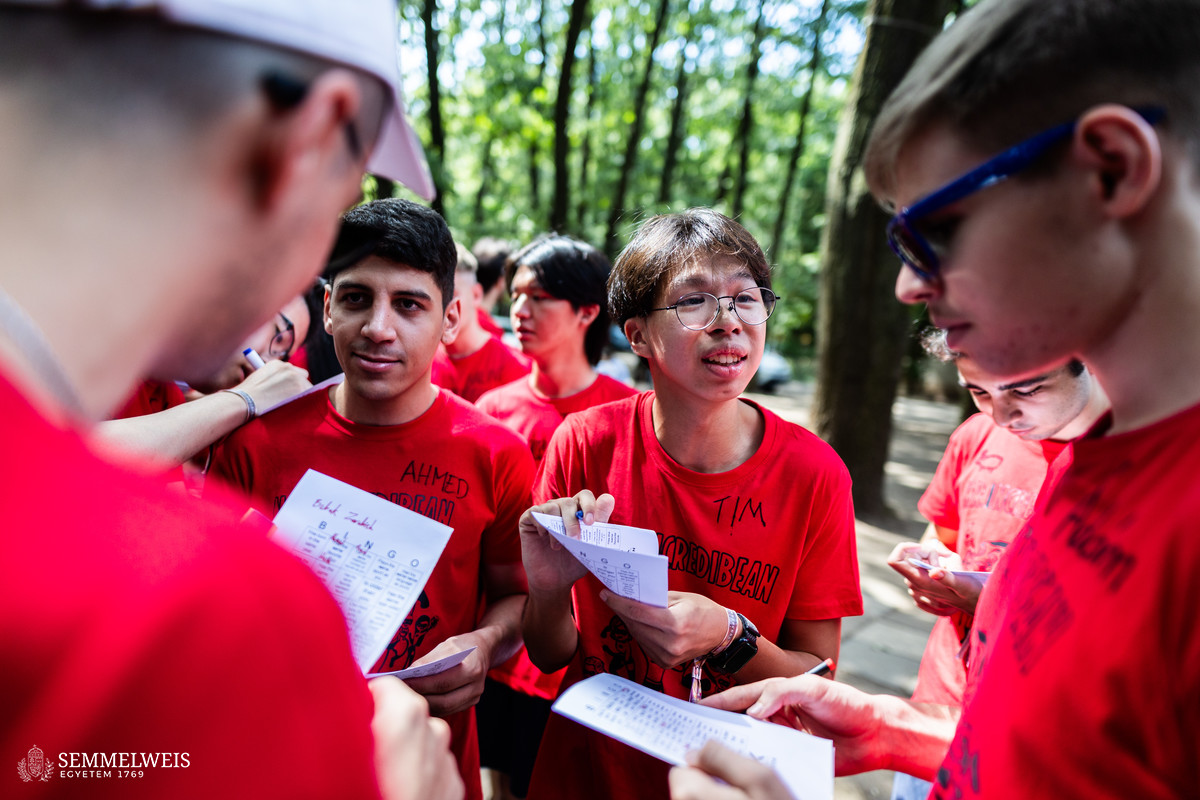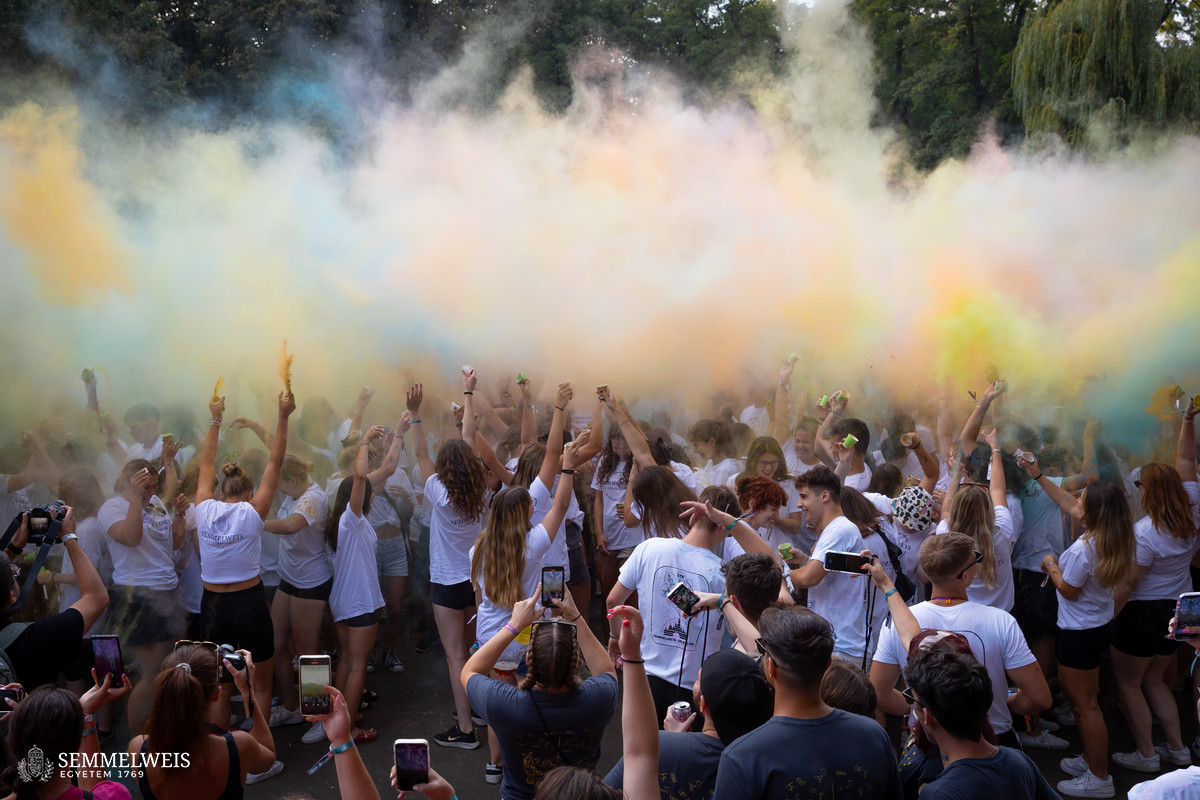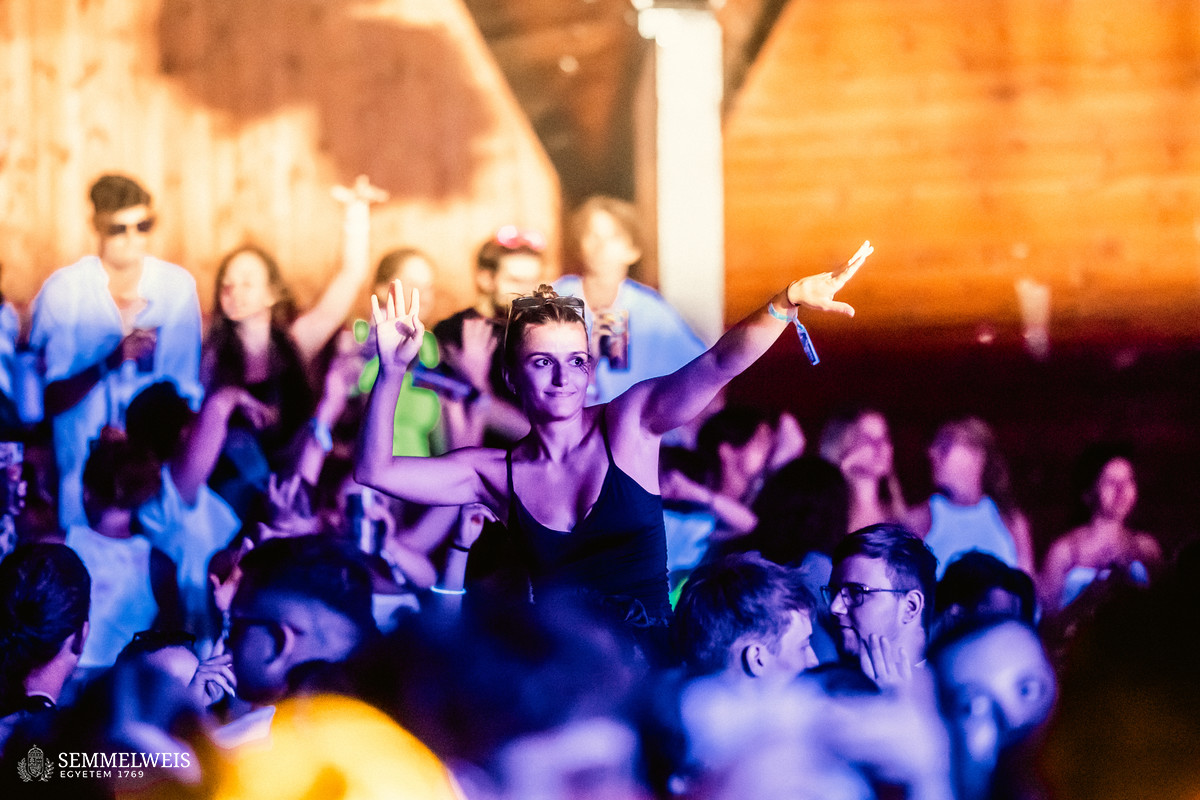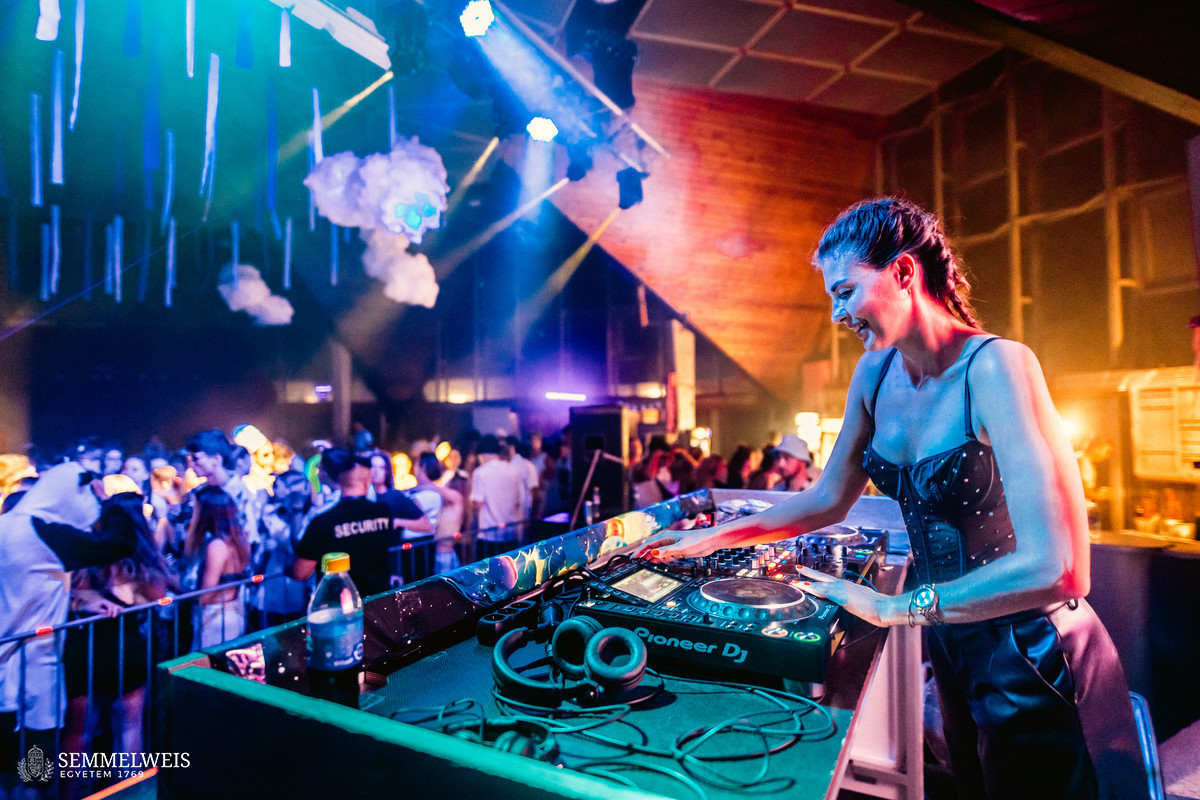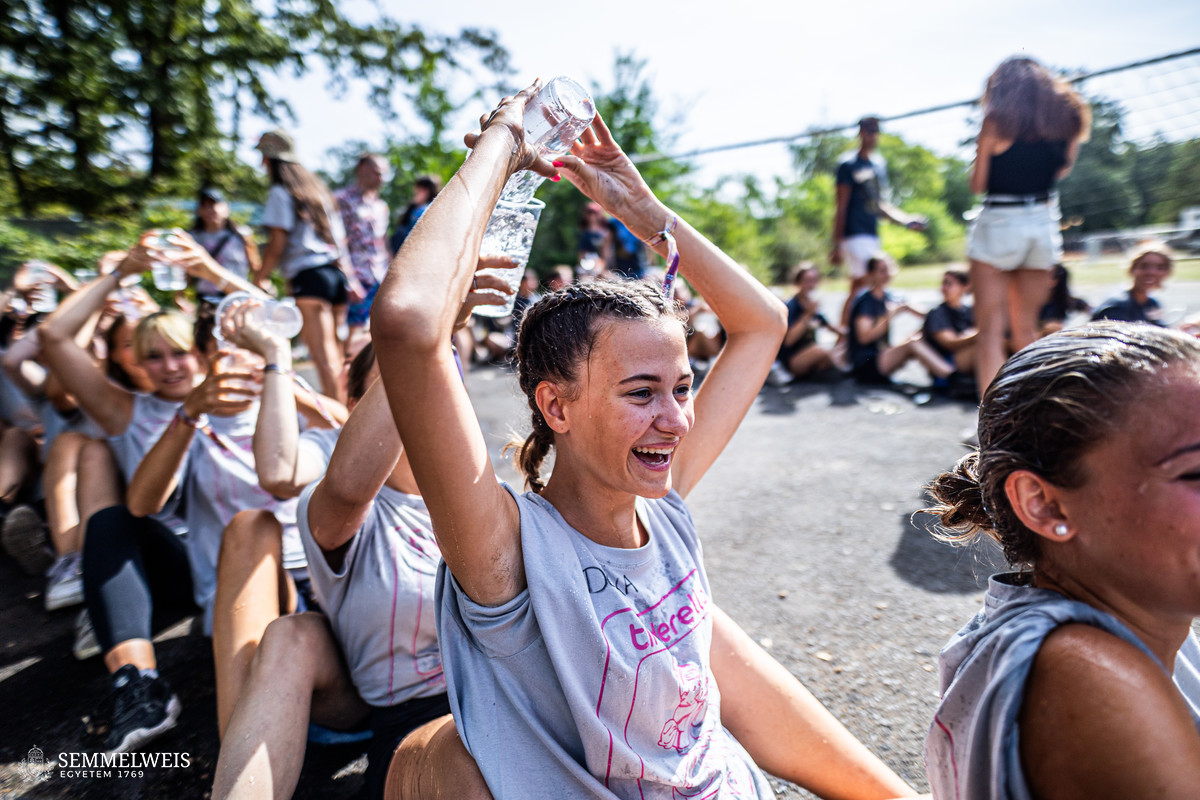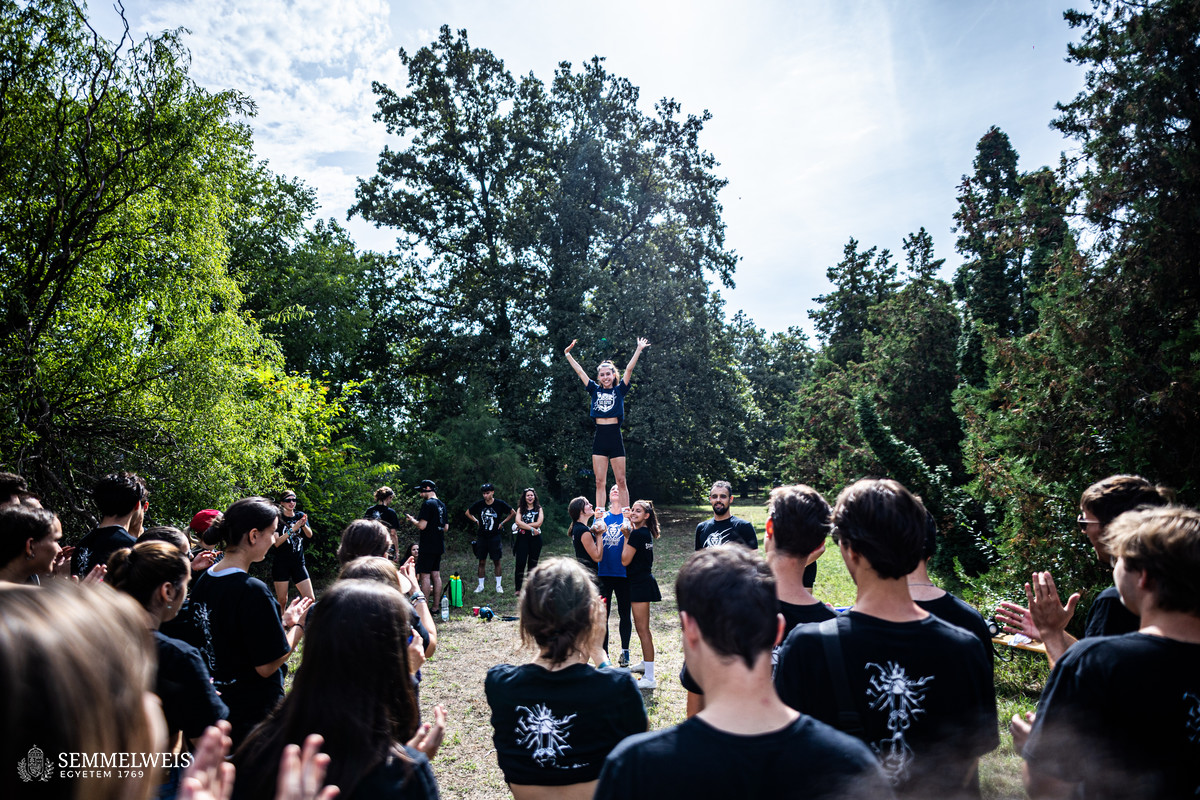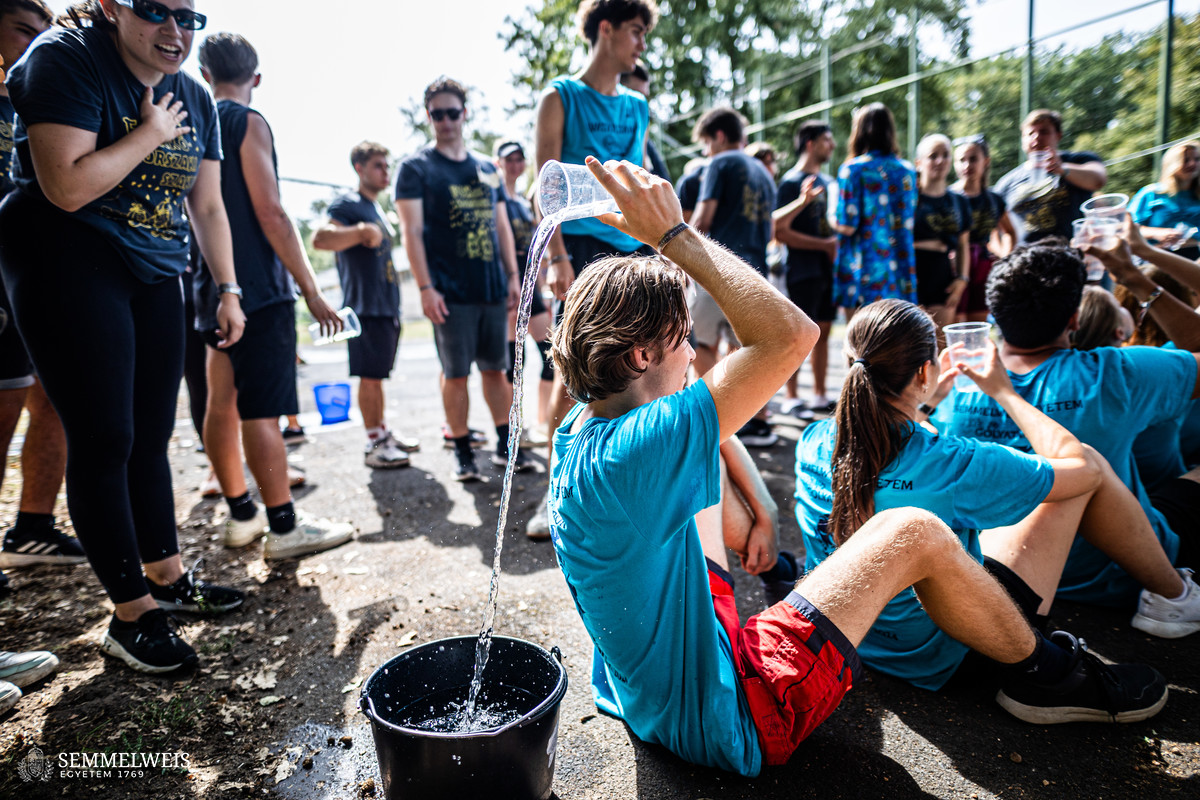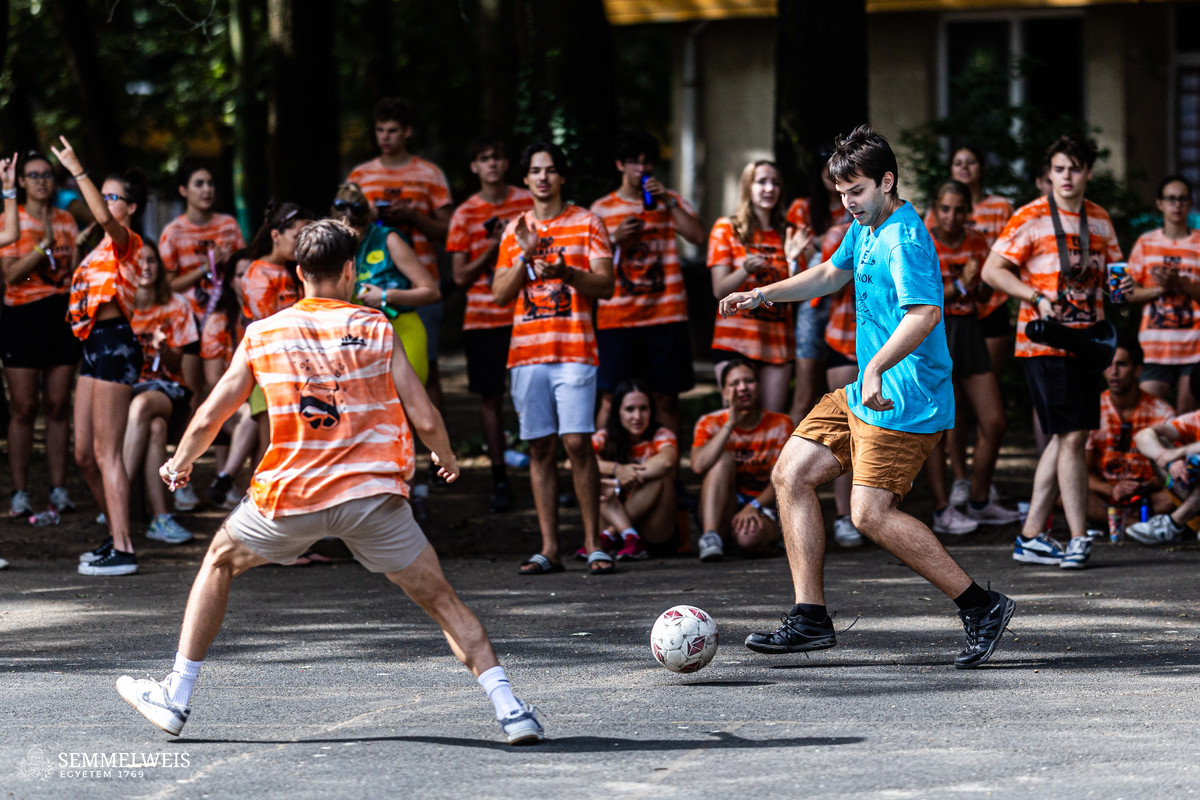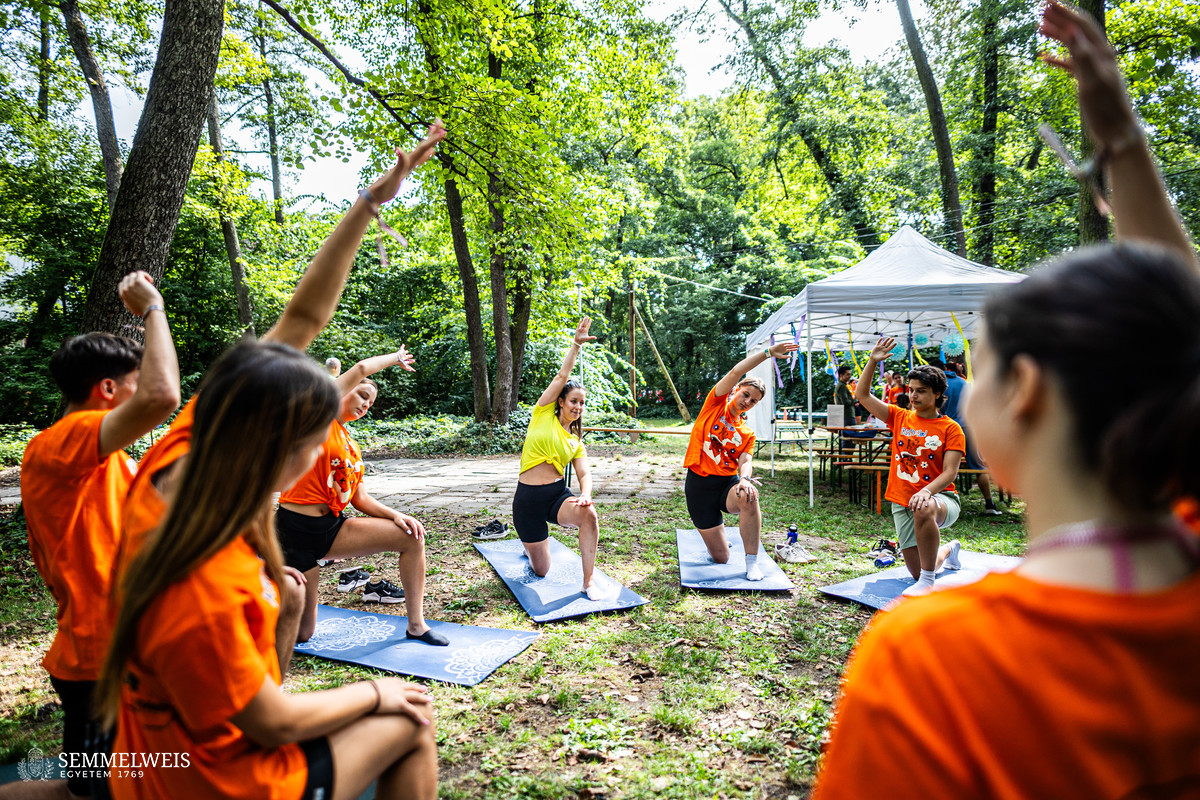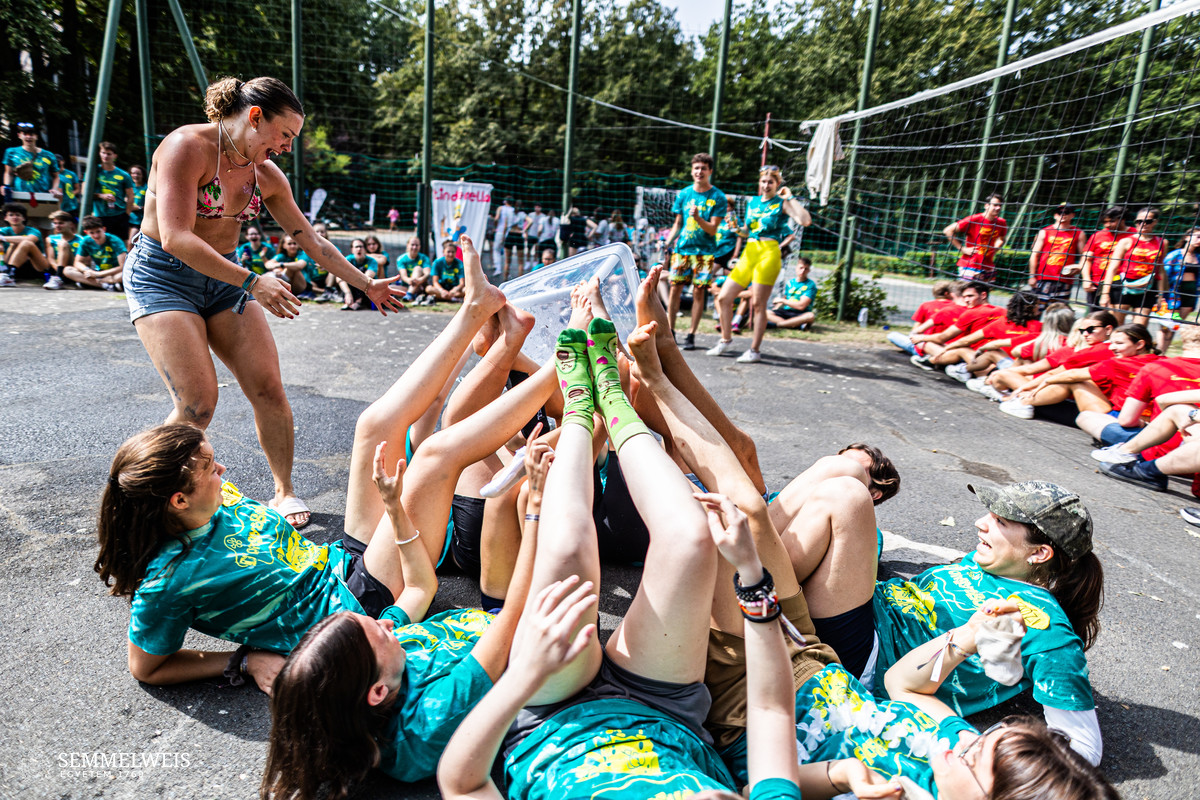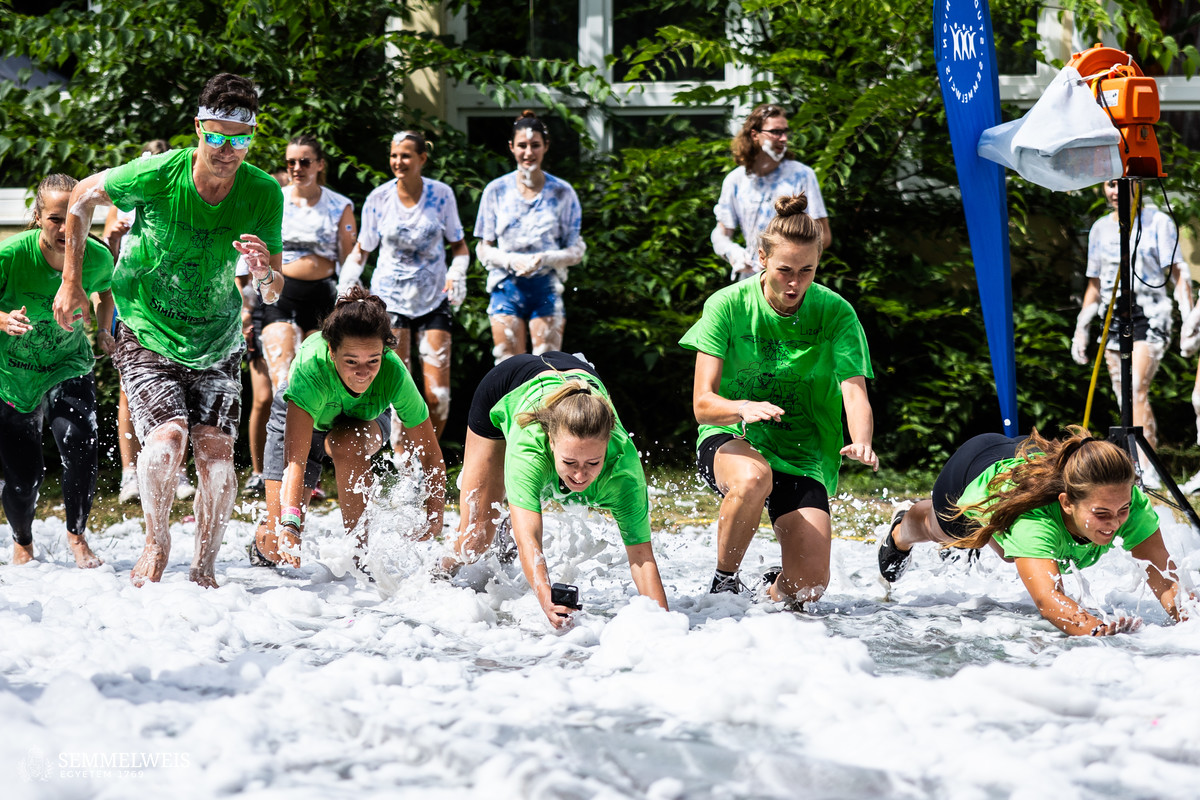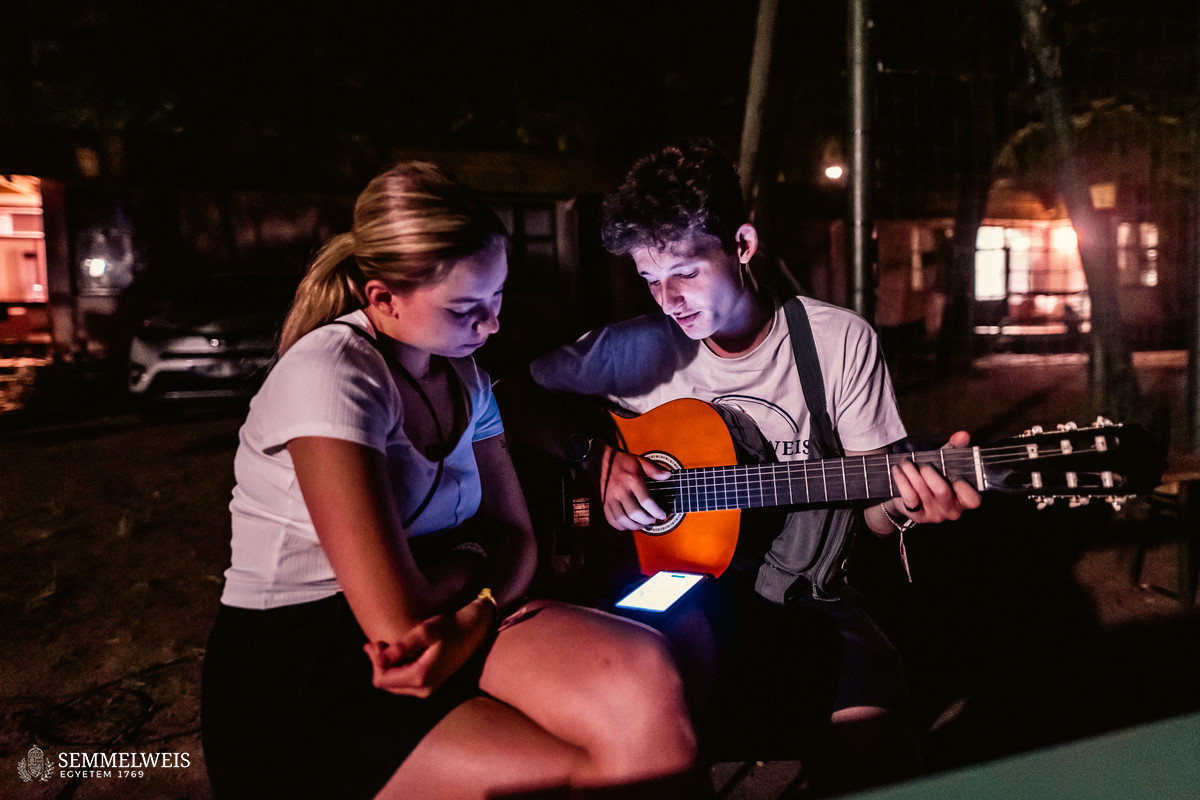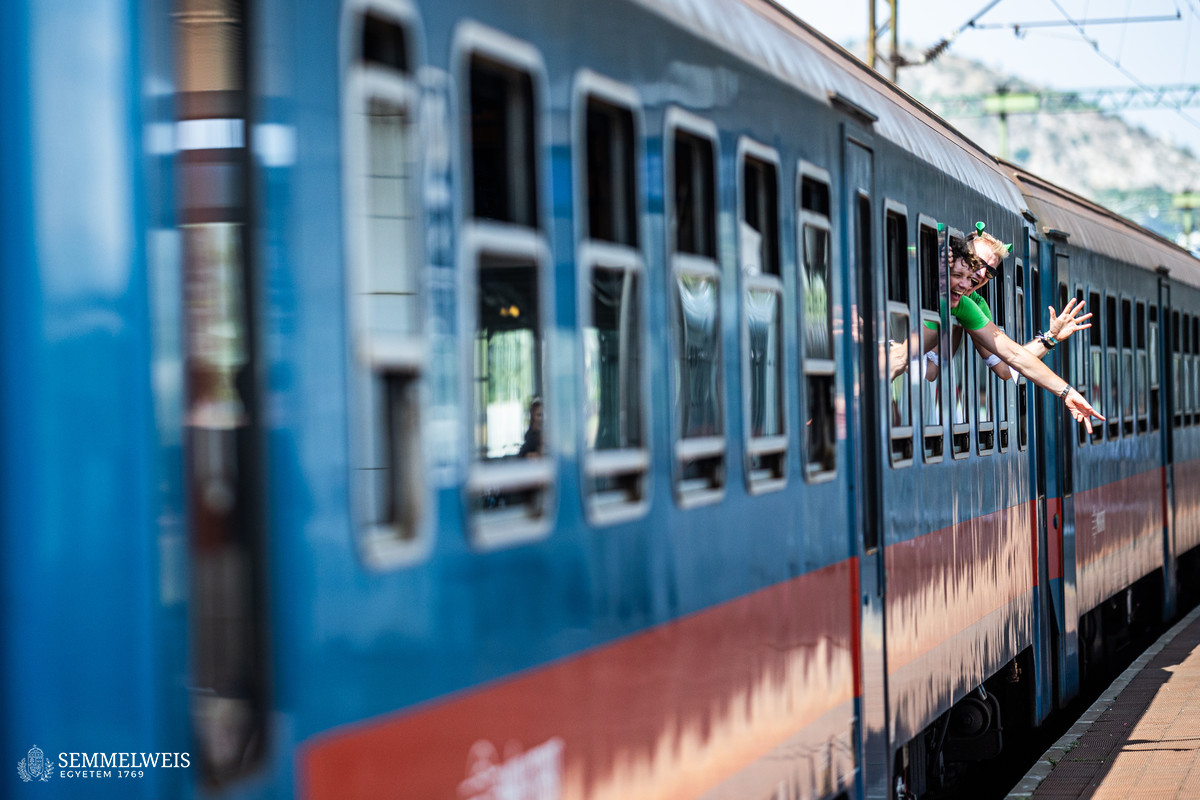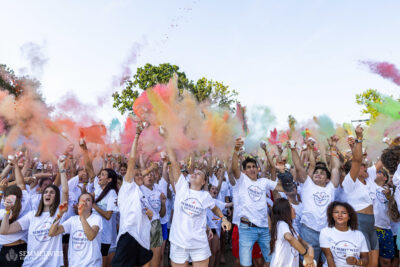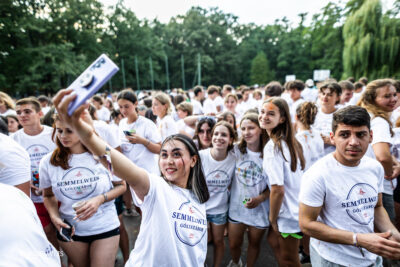“I can reassure you that it is true: You have become students of Semmelweis University, one of the top one percent of the world’s top universities, and from now on you are also members of the Semmelweis Family,” Rector Dr. Béla Merkely greeted the freshmen at the Forum Day of the Freshman Camp in Tata. He added that Semmelweis University, with its 16,000 students, is clearly the largest medical and health sciences school in Europe and one of the leading universities in Central and Eastern Europe, constantly striving to provide world-class education with excellent faculty. The Semmelweis Family brings together students from 119 countries around the world, making the Freshman Camp a great opportunity to network with international students. This multicultural environment is one of the greatest assets of Semmelweis, the rector stressed.
He also revealed that this year had seen a significant increase in the number of applicants and admissions to the Faculty of Medicine (FOK), the Faculty of Dentistry (FOK), and the András Pető Faculty (PAK); also, more students had applied to the English and German-language programs, with more than 2,200 Hungarian and 1,300 international students admitted to the university.
With the number of applicants increasing, the competition is also getting fiercer, so your successful admission is a remarkable achievement. The admission interviews have clearly shown that you are the cream of the crop, fantastically talented, hard-working students, who even excel in sports, culture, or philanthropy. Your perseverance and enthusiasm will be much needed because studying at Semmelweis is far from easy, there will be obstacles. – Rector Dr. Béla Merkely
In the autumn, Curriculum Reform 2.0 will be introduced at the Faculty of Medicine, the Faculty of Dentistry, and the Faculty of Pharmaceutical Sciences, providing a much more practice-oriented education. For example, at the Faculty of Medicine, students will spend half of their studies directly in patient care, Dr. Béla Merkely reminded the freshmen. He also pointed out that the university leaders and faculty were available to students throughout the Forum Day and were open to questions, because, as he said, “our main goal is to help you become the best professionals.” He added that all students and their relatives were invited to attend the Opening Ceremony of the 254th Academic Year and the ceremonial oath of first-year students in the MVM Dome on August 31. The rector then presented the students with university souvenirs to remind them of the very beginning of their university careers.
Semmelweis University is more than a higher education institution, as it not only provides the opportunity to acquire knowledge but also offers a close-knit, supportive community, emphasized Csenge Gecsey, President of the Students’ Union (HÖK) in her welcome address. She thanked the camp organizers and the members of the Instructor Volunteer Group (IÖCS) for making the freshmen’s first steps on the road to their chosen profession a memorable experience. She added that the Students’ Union would accompany them throughout their university careers, offering support and assistance when needed, whatever challenges they encountered. Nikolett Hári and István Fejes, camp organizers from HÖK, emphasized that the acquaintanceships and friendships born at the Freshman Camp could accompany the participants not only during their university years but also throughout their careers, reminding them that the strength of the university community lay in diversity and togetherness.
Orsolya Demeter, President of IÖCS, stressed that the new academic year in September would bring a crucial phase in the students’ lives, with many new opportunities, challenges, acquaintances, and friendships to be made while they started practicing their profession. She advised the freshmen to enjoy the ride.
Socializing and networking began the day before, on August 20, when participants gathered in Budapest before their departure to Tata. The freshmen were divided into 23 teams, with one reserved for international students.
At the International Forum Day, Dr. Béla Merkely, Rector, Dr. Alán Alpár, Vice-Rector for International Studies, and Dr. Marcel Pop, Director of International Relations, greeted international students of the Freshman Camp on behalf of the university leadership. First-year students from Austria, Brazil, Canada, China, Egypt, Germany, Hungary, Japan, India, Iran, Israel, Norway, Pakistan, Syria, South Korea, Türkiye, and the United States were given an introduction to university life and studies, the international relations, internship, mobility, and scholarship opportunities; moreover, the informal meeting also featured a Q&A session.
Based on feedback from previous years, several joint programs with Hungarian students were also organized for international students this year. The playful activities mostly focused on getting to know the university life as well as fellow students from within and outside the faculties, while the evenings offered entertainment with various performers, DJs, and concerts.
Around 400 instructors from IÖCS and 40-50 students from HÖK contributed to organizing and delivering the programs during the five-day camp. Orsolya Sisa, the camp organizer from IÖCS, told our website that the freshers’ camp was such a defining experience for her that this inspired her to become an instructor.
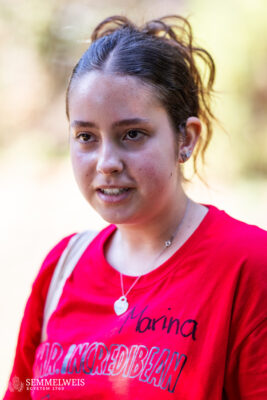 Marina Lemos Ribeiro from Brazil realized she wanted to study medicine around the age of 12, as she loved biology and chemistry, especially learning about the human body and how it worked. Also, as her family made frequent trips to Europe, she was impressed by the connectedness and reasonable distances within the continent, which motivated her to apply to a European university.
Marina Lemos Ribeiro from Brazil realized she wanted to study medicine around the age of 12, as she loved biology and chemistry, especially learning about the human body and how it worked. Also, as her family made frequent trips to Europe, she was impressed by the connectedness and reasonable distances within the continent, which motivated her to apply to a European university.
She chose Semmelweis based on its rankings and infrastructure, and “the fact that it has a lot of international students, as I feel more welcomed in a place that receives a lot of people from outside.” She spoke to many Hungarian and international students at the Freshman Camp and feels that she has already made some great friends.
Melinda Katalin Kiss, Judit Szabados-Dőtsch
Translation: Judit Szabados-Dőtsch
Photos by Boglárka Zellei, Bálint Barta – Semmelweis University
